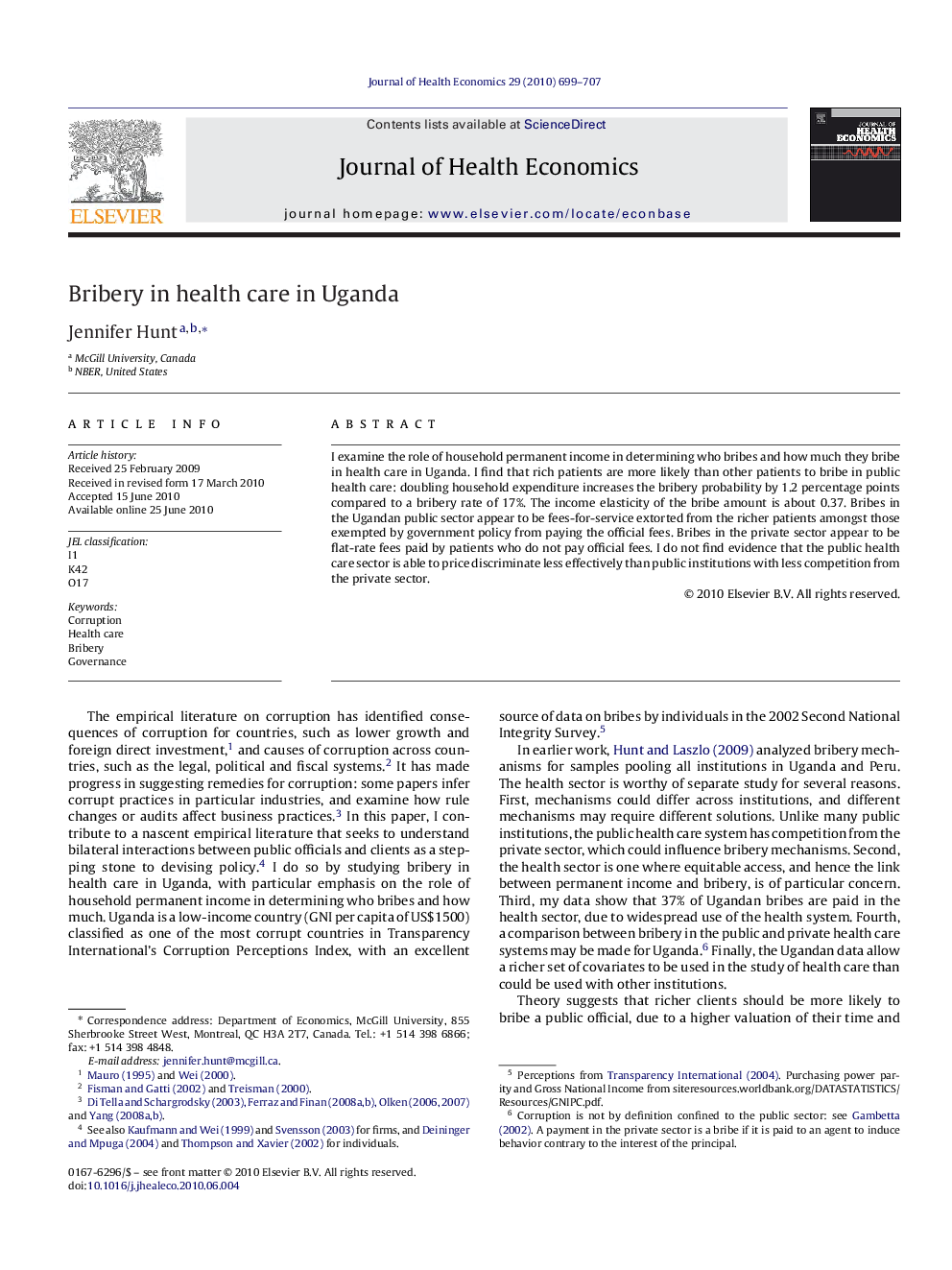| Article ID | Journal | Published Year | Pages | File Type |
|---|---|---|---|---|
| 961242 | Journal of Health Economics | 2010 | 9 Pages |
Abstract
I examine the role of household permanent income in determining who bribes and how much they bribe in health care in Uganda. I find that rich patients are more likely than other patients to bribe in public health care: doubling household expenditure increases the bribery probability by 1.2 percentage points compared to a bribery rate of 17%. The income elasticity of the bribe amount is about 0.37. Bribes in the Ugandan public sector appear to be fees-for-service extorted from the richer patients amongst those exempted by government policy from paying the official fees. Bribes in the private sector appear to be flat-rate fees paid by patients who do not pay official fees. I do not find evidence that the public health care sector is able to price discriminate less effectively than public institutions with less competition from the private sector.
Related Topics
Health Sciences
Medicine and Dentistry
Public Health and Health Policy
Authors
Jennifer Hunt,
